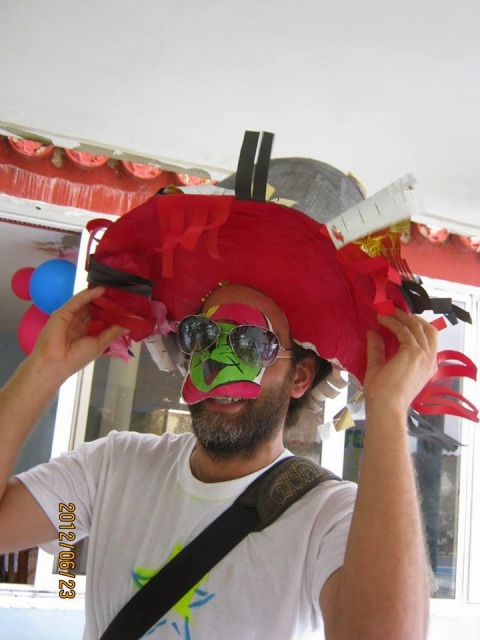Orlando Luis Pardo Lazo
There aren’t enough of the stupid-ass songs. Because those same songs, the ones we joked stupid-assedly about in our rage-filled adolescence, are now the only thing left that allows us to know what we were, what we are, what we will be.
With those songs, we can forget about everything and everybody. It seems like we have it all if we have them, these jingles from our bad memory. And then we don’t feel that malady we carry that weighs us down, that ruins this life we have and can’t live. Much less do confront destiny, that deviation that destabilizes us from despotism to despotism, and from corpse to corpse, without their ever sparking in our breast that semi-magical, semi-mendacious flame of love, always so hesitant.
A rose in your hair would be redundant. Not stars in the sky nor medals hanging from the neck would give off more light than that which illumines the nights on our long trek — which in the wind seems the accent of a musical voice sounding at the least movement of our body as we walk. This is the danger of rheumatic rhymes. They entwine themselves ridiculously around our heart until one day we realize that our blood pump is no more than that: a mortal wound that we endeavor to heal until now all we know is what we were not, what we are not, and what we will not be.
Today the YouTube dawn of the United States is tenuous, tender and so troubled that it knocks us down. In that word millions and millions of us Cubans will perish here. Into a countryless grave we will enter without peace a number much greater than the statistics of the Island and of Exile, because each one will die multiple times the death of his memories, but without ever coming across Eternity.
Archaeology in the United States is also a digital discovery. We click on sound tunnels that hardly fit into the interactivity of an internet navigator. They and we are hollow echoes, echoes of bones. We reproduce those miracles of bits and their intact state of preservation is incredible after having been abandoned so long after the stampede. In our escape we have spinelessly left behind the music, fossilized notes confiscated by the dictator’s delirious marshalls and his hymns at the level of history (the level history).
However, it was not the Tyrant of Pentagrams, but rather ourselves, the ones without history, who sacrificed the sonorous band of our biographies under the resentful boot of the Revolution. This is why God, who supposedly was mysterious music for the sicknesses of the soul, such as love, took revenge on us by inflicting an atrocious amnesia, with an emotional arrhythmia that makes us cry like stupid-asses at the first chords of decrepit songs from our other life.
The United States, for Cubans, are the silent states of the spirit of that other nation, so stuffed with bad verses, dreadful versifiers, decadent melodies, as is right for a real life that has made us more implausible with each new performance of those fossilized clips recorded in another Cuba just a few decades ago.
Exile is this: the betrayal of the eardrum. Totalitarianism never dreamed of converting us to socialism, but rather to deafness. He who does not hear gives his consent by not speaking. And the more we desire it amidst the decency of any country lost in common, the less we hear ourselves now among Cubans.
Oh, Love, a rose in your hair doesn’t even know what it looks like.
Translated by Alicia Barraqué Ellison
12 January 2015

